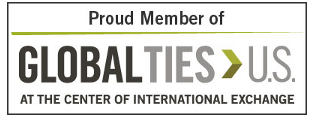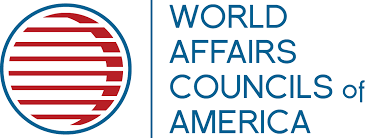.png)
Bring the World to the Classroom Through Diplomacy
To Learn More or Arrange a Simulation Please Contact Tim Horgan @thorgan@wacnh.org
 Working in small teams, students take on the roles of real diplomats working on real diplomatic problems. Over the course of two class periods, students will craft solutions, negotiate with their partner representatives, take in new information, and redesign their solutions to accommodate the needs of other stakeholders. This engaging format inspires students to take the lead in their own learning through a multidisciplinary approach. In addition, because each team relies on every member to represent their interests throughout the negotiation periods, all students remain engaged in the learning and skills development.
Working in small teams, students take on the roles of real diplomats working on real diplomatic problems. Over the course of two class periods, students will craft solutions, negotiate with their partner representatives, take in new information, and redesign their solutions to accommodate the needs of other stakeholders. This engaging format inspires students to take the lead in their own learning through a multidisciplinary approach. In addition, because each team relies on every member to represent their interests throughout the negotiation periods, all students remain engaged in the learning and skills development.
- Suez Canal Crisis
- Darfur Genocide
- Non-Proliferation & National Security
- Barbary Pirates Crisis
- Water Crisis
Why do teachers bring this to their classroom?
Frequently Asked Questions
What’s a simulation?
A diplomacy simulation is a collaborative learning experience in which students step into the role of real-life diplomats. Within each simulation, there are five to six teams representing foreign governments, non-governmental organizations (NGOs), and international organizations, each with different perspectives and priorities. Under set time constraints, teams try to negotiate a peaceful solution to the crisis in the scenario. Students develop their group’s positions using information in the free downloadable simulation packet, and defend or modify their choices in real time.
How can I use it in the classroom?
Our diplomacy simulations serve as excellent complements to lessons on history, international relations, U.S. foreign policy, and current events. They help students develop skills in critical thinking, teamwork, collaboration, problem-solving, persuasive communication, and global competence. The World Affairs Council of New Hampshire has found these simulations work best over the course of two class periods (about 120 minutes), to give the students ample time to negotiate.
How do diplomacy simulations prepare students to succeed in the 21st century?
In today’s globalized world, analytical and interpersonal skills are increasingly important. Diplomacy simulations help prepare students to tackle complex issues together by developing the following 21st-century skills:
- Critical thinking: Researching and defining a position on a foreign policy issue, adjusting this position as the negotiation evolves.
- Collaboration: Prioritizing goals and objectives, and defining responsibilities within the group.
- Problem-solving: Creatively negotiating, compromising, and resolving conflict.
- Persuasive Communication: Active listening, team building, alliance-building, weighing different perspectives and points of view, articulating a position, and persuading others.
- Global Competence: Investigating a worldwide issue, appreciating different perspectives on that issue, finding opportunities to improve the situation, and taking practical actions.
How much does it cost?
Diplomacy simulations are free! All of the required materials are available for free download and the World Affairs Council of New Hampshire will provide a trained facilitator to lead the simulation in the classroom.
What materials do I need?
Our free simulation materials include teacher and student packets, name tags, stakeholder fact sheets, and tent cards. They can all be downloaded on our website.
How many students can participate?
Diplomacy simulations are designed for classes of 15 to 30 students. However, simulations will work as long as students can be divided into 5 or 6 teams. If you would like to work with a larger group of students, please let the World Affairs Council of New Hampshire know, as additional roles can be devised to include students in unique roles (such as a Reporters' Pool).
What ages can participate?
Middle school, high school, college, and graduate-level students can successfully participate, depending on the simulation.
How far in advance do I need to prepare my students?
Most of our simulations can be run without prior preparation by students. See the instructional videos above for more information. It is recommended that the students receive the materials at least a week in advance of the simulation to allow ample time for them to understand their role and digest the information.
Can I edit a simulation to fit my students’ needs?
Yes! Our diplomacy simulations are editable and in the public domain.
Who wins the simulation? What if there is no agreement at the end?
There are no winners or losers in the simulation. While consensus is the goal, a successful simulation may end in disagreement, but more important than the end result is the process. By working in teams and negotiating with each other, students will practice critical thinking, teamwork, collaboration, problem-solving, persuasive communication, and global competence.


